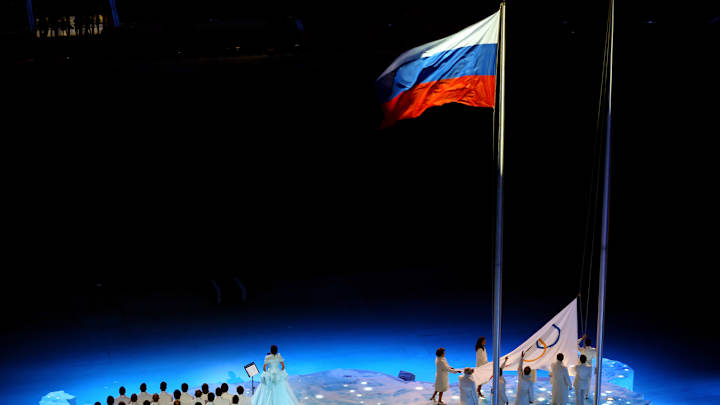Russian officials admit to widespread doping operation at Olympics

Russian officials have admitted to working a far-reaching doping operation that implicated dozens of Russian athletes at not just the 2014 Winter Olympics in Sochi but across several Olympic Games, The New York Times' Rebecca Ruiz reports. One day later, Russia reportedly backtracked on its claims.
“It was an institutional conspiracy,” Russia's national anti-doping agency acting director Anna Antseliovich toldThe Times.
Over the past year, The New York Times has reported that former anti-doping lab chief Dr. Grigory Rodchenkov helped tamper with urine samples at the Winter Olympics in Sochi. Cocktails that mixed alcohol and performance-enhancing drugs were also used as ways to cheat. The Federal Security Service, a successor to the K.G.B., broke into sample bottles holding urine. High-ranking officials would take bribes and other means to cover up positive tests by notable elite athletes.
Russian sports officials denied all the allegations. More than 100 athletes were barred from competing at the 2016 Olympics in Rio de Janeiro as a result of the evidence of rampant doping. The International Association of Athletics Federation, track and field's governing body, suspended Russian athletes from international competition and the ban remains in place going into 2017.
Russian officials continue to reject the accusation that the doping program was state-sponsored, which would implicate President Vladimir V. Putin and his closest associates.
On Wednesday, Antseliovich backtracked on her comments to The Times and said her words were taken out of context in a Facebook post.
RUSADA followed up by issuing the following statement:
“In response to the article published in “The New York Times” newspaper, “RUSADA” states that its Acting Director General A.A. Antseliovich has been misquoted and her words were taken out of the context. During the conversation between A.A. Antseliovich and the journalist Rebecca Ruiz, the Acting Director General pointed out that in the second part of his report published on December 9, 2016, Richard McLaren no longer used the words “state-sponsored system of doping” and instead referred to “institutional conspiracy” thereby excluding potential involvement of the top country officials. Unfortunately, Ms. Ruiz, by taking the words out of the context, created an impression that RUSADA management admits to the existence of such institutional conspiracy of doping cover-up in Russia. We would like to stress that RUSADA has no authority to admit to or deny any such fact, since the investigation of the case is handled by the Investigative Committee of the Russian Federation. In addition, we would like to stress that RUSADA firmly believes that every accused athlete has unalienable right to challenge the accusations.”
Ruiz defended her story on Twitter.
In response to the Kremlin comments, all quotes in our story today are accurate. (Tweet 1 of 3) https://t.co/FuF1xDTes4
— Rebecca R. Ruiz (@RebeccaRuiz) December 28, 2016
Russian officials told me they are no longer disputing the existence of doping schemes, only that those schemes were state-sponsored. (2/3)
— Rebecca R. Ruiz (@RebeccaRuiz) December 28, 2016
I asked Vitaly Smirnov, Russia's antidoping reform chief appointed by President Putin, if this was correct. He said yes. (3/3)
— Rebecca R. Ruiz (@RebeccaRuiz) December 28, 2016
“From my point of view, as a former minister of sport, president of Olympic committee — we made a lot of mistakes,” Vitaly Smirnov, a Russian sports official toldThe Times in Tuesday's report.
Smirnov also mentions the Fancy Bears, a group of hackers believed to be Russian that leaked several athlete medical records after the 2016 Olympics. Many of the records showed that athletes were granted several therapeutic exemptions for legitimate medical uses.
“Russia never had the opportunities that were given to other countries,” Smirnov added.
Last week the International Olympic Committee announced a look into disciplinary proceedings against 28 Russian athletes whose drug-testing samples were likely tampered with in Sochi.
